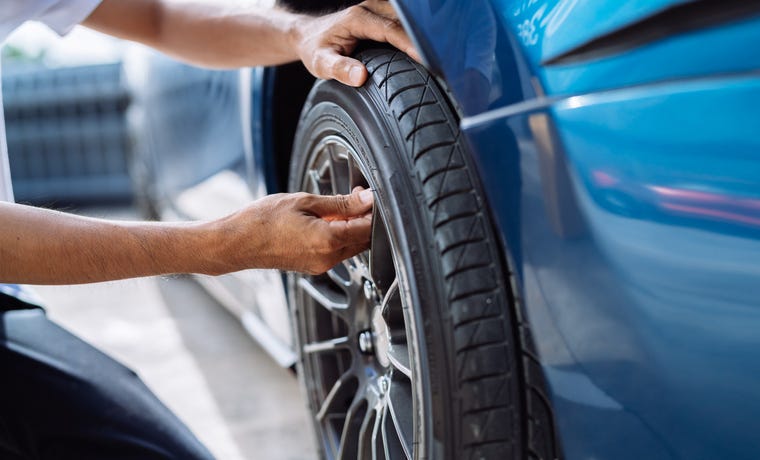
You've got your playlist built, snacks are packed, your suitcase is almost ready and you're itching to hit the pavement for your Memorial Day road trip.
But you might be forgetting the most important thing -- is your car ready to get you to where you want to go?
Roughly 37.1 million Americans are forecast to take a road trip this Memorial Day weekend, according to AAA, and thousands of them will experience car trouble along the way.
Nationwide, AAA expects to rescue more than 483,000 stranded motorists during the holiday weekend. The three most common reasons are flat tires, dead batteries and lockouts.
A recent AAA survey found that 50% of travelers plan to get a professional vehicle inspection before their summer road trips, and another 23% will conduct their own inspection. However, 19% of drivers say they have no plans to get a vehicle inspection before hitting the road this summer.
"A properly maintained vehicle is critical for a successful and safe road trip," AAA spokesperson Adrienne Woodland said in a statement. "We encourage all drivers to get a pre-trip inspection of their tires, battery, breaks, fluids, and other basics. This could help prevent a breakdown before it happens."
Since the last thing you want to run into is trouble on the road, AAA is sharing these tips to prevent car problems on your trip:
• Check your tires – At minimum, AAA recommends checking your tires once a month and before taking a long trip. Pay special attention to both tire inflation pressure and tread depth. Be sure to inspect all four tires and the spare tire if your vehicle has one.
• Check your battery – The average car battery life is typically 3-5 years. If your engine is slow to start and/or your lights are dim, your battery may be nearing the end of its life. Visual signs of damage or corrosion are other indicators of deterioration.
• Listen to and feel the brakes – If you hear a grinding sound or feel a vibration when applying the brakes, take your vehicle to an auto repair shop for a brake inspection.
• Replace wiper blades and replenish windshield cleaner – Rubber wiper blades naturally deteriorate over time. Most manufacturers recommend replacing them every 6-12 months. If wipers streak or fail to clear the windshield thoroughly, replace the blades.
• Top off engine oil and other fluids – Check that engine oil, coolant and brake, transmission and power steering fluids are at the correct levels for safe vehicle operation. When adding fluids, use products that meet the specifications listed in the owner's manual.
• Replenish emergency kit supplies – AAA recommends keeping a well-stocked emergency kit in your vehicle. Include a flashlight and extra fresh batteries, first-aid supplies, drinking water, non-perishable snacks for people and pets, car battery booster cables, emergency flares or reflectors, a rain poncho, a basic tool kit, duct tape, gloves and shop rags or paper towels.


